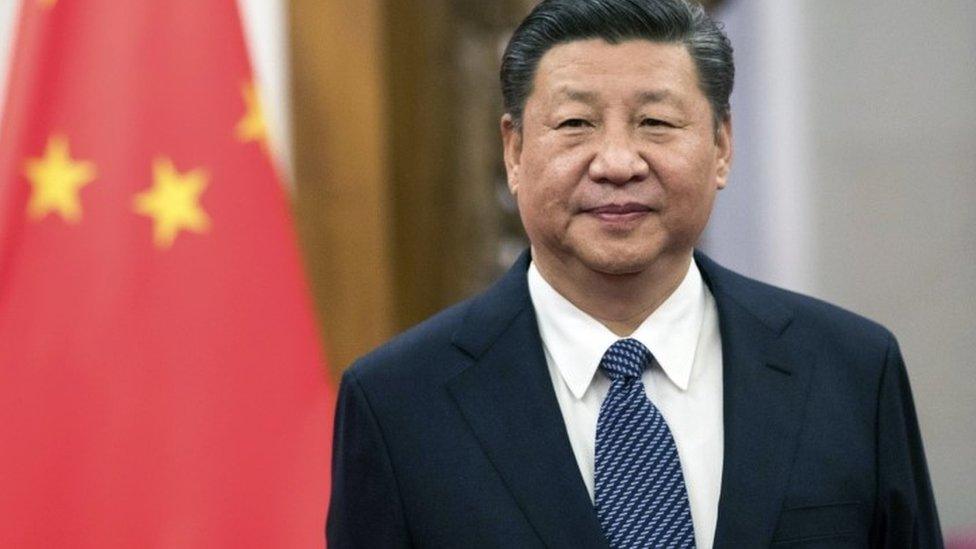- Courses
- GS Full Course 1 Year
- GS Full Course 2 Year
- GS Full Course 3 Year
- GS Full Course Till Selection
- Answer Alpha: Mains 2025 Mentorship
- MEP (Mains Enrichment Programme) Data, Facts
- Essay Target – 150+ Marks
- Online Program
- GS Recorded Course
- Polity
- Geography
- Economy
- Ancient, Medieval and Art & Culture AMAC
- Modern India, Post Independence & World History
- Environment
- Governance
- Science & Technology
- International Relations and Internal Security
- Disaster Management
- Ethics
- NCERT Current Affairs
- Indian Society and Social Issue
- NCERT- Science and Technology
- NCERT - Geography
- NCERT - Ancient History
- NCERT- World History
- NCERT Modern History
- CSAT
- 5 LAYERED ARJUNA Mentorship
- Public Administration Optional
- ABOUT US
- OUR TOPPERS
- TEST SERIES
- FREE STUDY MATERIAL
- VIDEOS
- CONTACT US
World Happiness Report 2025
World Happiness Report 2025

Introduction
- The World Happiness Report 2025, published by the Wellbeing Research Centre at the University of Oxford, in partnership with Gallup, the UN Sustainable Development Solutions Network, and an independent editorial board.
- The report analyses global happiness by exploring social factors, such as kindness, trust, family connections, and social cohesion. It also emphasizes the crucial role of prosocial behaviour—acts like helping others—and highlights the importance of social trust in determining overall happiness.
|
Methodology and framework The happiness rankings are based on six key variables:
Data from the Gallup World Poll is used to evaluate these factors alongside subjective life assessments. |
Key Highlights of the report
1. Caring and Sharing: Benevolence and Happiness
- Nordic Model of Happiness:
- Finland ranks first, followed by Denmark, Iceland, Sweden.
- Key reasons include high levels of social trust, efficient governance, and robust community support.
- Notably, no G7 nation ranked within the top 20 happiest nations, reflecting the inadequacy of economic strength alone.
- Afghanistan ranks as the unhappiest nation, followed by Sierra Leone and Lebanon. Contributing factors include political instability, lack of freedom, and poor access to basic needs
- Benevolence during COVID-19:
- Globally, acts of kindness increased by around 10% during the pandemic and remain elevated post-pandemic, called the "benevolence bump"
- Countries with widespread kindness experience more equitable distribution of happiness.
- Misjudging Others Honesty:
- Global studies show people significantly underestimate strangers honesty.
- In wallet-return experiments, wallets were returned at rates twice as high as expected, highlighting the pessimistic perception of public trust.
Benevolence refers to acts like helping, volunteering, and donating. The benevolence bump describes increased kindness observed globally during and post-COVID-19.
2. Sharing Meals and Social Connectivity
- Importance of Meal Sharing:
- Regular communal dining greatly enhances subjective well-being, comparable in magnitude to economic security factors.
- Countries with frequent shared meals report stronger social cohesion and lower loneliness.
- India retains strong communal meal traditions but urban lifestyles threaten these practices, necessitating policies to encourage social dining.
- Increasing Solitary Eating:
- Around 25% of Americans reported eating all meals alone on a given day (2023), marking a 53% increase since 2003.
- Rising solitary eating is linked with weakening social bonds and increased loneliness, impacting overall happiness negatively.
Subjective well-being means self-reported happiness and life satisfaction. Meal-sharing frequency indicates social connectedness.
3. Living with Others: Family and Happiness
- Optimal Household Size:
- Households with approximately 4-5 members have the highest happiness levels, balancing economic resources and emotional support.
- India's traditional joint family system positively contributes to happiness, although urban migration increasingly disrupts these structures.
- Impact of Living Alone vs. Crowded Homes:
- Individuals living alone report lower happiness levels due to isolation.
- Conversely, very large households often face economic stress and overcrowding issues, also reducing happiness.
- Latin America's Model:
- Strong family connections and intergenerational living in Latin America correlate with higher family-related happiness, despite economic challenges.
- Suggests that strong familial bonds can significantly boost overall happiness levels.
- New entrants to the top 10 include Costa Rica (6th) and Mexico (10th), highlighting their strong community bonds and social support systems
Household configuration—composition and relationships within a household—greatly affects emotional support and happiness.
Youth, Mental Health, and Social Trust
The Loneliness Epidemic
- Around 19% of young adults globally reported having no close social connections in 2023, a 39% increase compared to 2006
- Individuals who reported having at least one person they are close to are 16% more satisfied than individuals with no close contacts
- With 47% of India's population under 25 years, addressing youth mental health is crucial for the nation's future
The Empathy Gap
- Young adults consistently underestimate peers empathy, mistakenly believing others lack compassion or supportive-ness.
- Addressing this empathy misperception through targeted interventions (workshops, awareness campaigns) significantly improves youth happiness by fostering greater social connections.
Mental Health Challenges in India
- According to the Mpower Research report, 38% of Indian students face academic anxiety, 50% report declining performance, 41% experience social isolation, and 47% struggle with sleep issues
- Alarmingly, 8.7% of Indian students have contemplated suicide due to academic pressure, yet only 2% seek professional help.
- The WHO warns that mental health disorders could cost India $1.03 trillion by 2030, underscoring the urgent need for action
- 50% of mental health conditions emerge by age 14 and 75% by age 24, highlighting the importance of early intervention
The empathy gap means youths wrongly perceive peers as less supportive, negatively affecting their willingness to form meaningful relationships.
5. Prosocial Behaviour and Reducing "Deaths of Despair"
- Benefits of Helping Others:
- Greater involvement in prosocial acts (e.g., helping others, volunteering) significantly reduces suicides and substance abuse deaths ("deaths of despair").
- A 10 percentage-point increase in community involvement correlates with approximately 1 fewer despair-related death per 100,000 people annually.
- Global and Demographic Variations:
- Global declines observed in despair deaths overall, yet countries like the USA and South Korea still face rising or high levels.
- Older men particularly vulnerable, emphasizing targeted mental health and community programs.
- Significant suicide rates among Indian youth and farmers highlight the urgent need for enhanced mental health interventions and robust community support systems
Deaths of despair include suicides and deaths due to substance abuse, reflecting extreme unhappiness. Prosocial behaviour refers to voluntary acts benefiting others.
6. Trust, Happiness, and Political Polarization
- Impact of Declining Trust:
- Reduced social trust and happiness significantly contribute to rising political polarization, fuelling support for extremist political movements.
- Individuals dissatisfied with life and distrustful of others more likely to support radical political ideologies, threatening social stability.
- Trust as Social Stability:
- Countries with higher levels of trust maintain greater political stability, emphasizing the importance of community bonds in preserving democratic systems.
- Promoting social cohesion through policy interventions can reduce political extremism.
- According to the Edelman Trust Barometer 2025, India slipped to third place globally in terms of overall trust, with a 15% trust gap between high-income (80% trust) and low-income populations (65% trust)
Social trust is citizens belief in fairness and honesty within society. Low trust levels fuel anti-establishment voting and political instability.
7. Charitable Giving: Maximizing Well-Being
- Evaluating Charities (WELLBYs):
- Report introduces the concept of Wellbeing-Years (WELLBYs), quantifying charity effectiveness in terms of increased happiness per dollar spent.
- India's growing charitable sector lacks structured WELLBY assessments, limiting effective resource distribution
- Mental Health Priority:
- Mental health interventions consistently yield extremely high WELLBY returns, highlighting their exceptional cost-effectiveness in improving overall happiness.
- Report urges prioritizing well-being impact evaluations to guide effective charitable giving.
Note: WELLBY (Wellbeing-Year) is a metric representing one year of significantly improved happiness per person, used to measure charitable impact.
India's Position in Global Context
Current Standing and Regional Comparison
- India ranks 118th out of 147 countries with a happiness score of 4.389, improving from 126th in 2024.
- India's lowest ranking was 144th in 2012, while its highest position came in 2022 at 94th
- Pakistan ranks 109th, Nepal 92nd, and China 68th, all outperforming India
- Surprisingly, India is unhappier than conflict-affected countries like Ukraine (111th), Mozambique, Iran, Iraq, Pakistan, Palestine (108th), Democratic Republic of Congo, Uganda, Gambia, and Venezuela
Trust and Prosocial Behavior in India
- India ranks 57th in monetary generosity, with donations remaining steady despite economic ups and downs
- Volunteering stands out as a strong point—India ranks 10th globally in volunteering
- When it comes to helping strangers, India stands at 74th, indicating a gap between organized community actions and spontaneous individual benevolence
- India ranks 115th in the likelihood of a neighbor returning a lost wallet, 86th for strangers, and 93rd for the police, suggesting fragile everyday trust in others and public institutions
Key Issues Identified
- Persistent underestimation of strangers' kindness reduces social trust unnecessarily.
- Increasing social isolation (e.g., solitary eating, youth loneliness) negatively impacts mental health and happiness globally.
- Rising internal happiness inequality within nations, indicating uneven resource distribution and social cohesion.
- High rates of "deaths of despair" in specific regions (USA, South Korea) highlight critical public mental health crises.
- Declining social trust significantly contributing to political polarization and instability.
- Lack of rigorous well-being impact evaluation in major charitable organizations hampers effective resource allocation.
Policy Recommendations
Strengthening Social Fabric
- Promote communal social activities (shared meals, community events) to combat isolation
- Design family-friendly policies in housing, employment, and social services to enhance familial bonds
- Implement inclusive governance and community-building initiatives to address declining trust
Mental Health Priorities
- Prioritize effective mental health interventions as a critical public health objective
- Develop targeted programs for vulnerable groups including youth, farmers, and urban migrants
- Integrate community involvement initiatives into public health strategies
Evidence-Based Approaches
- Encourage evidence-based charitable giving using WELLBY metrics
- Develop state-wise happiness indices to better understand regional variations
- Implement regular monitoring and reporting of happiness indicators across different demographic groups
Conclusion
- The World Happiness Report 2025 clearly underscores that strengthening social trust, community bonds, and prosocial behaviour is central to improving global happiness. Addressing challenges such as rising isolation, declining trust, and mental health crises is essential for societal well-being.
- Policymakers and communities must prioritize creating supportive social environments and utilizing effective interventions to build resilient, cohesive, and happier societies globally.
Initiatives in IndiaNational Mental Health Programs
Community-Led Initiatives
|
|
Also Read |
|
| Public Administration Optional | |
| UPSC Monthly Magazine | Question Answer Practice For UPSC |




